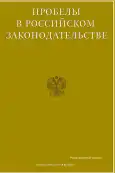Modern Terrorism: State and Prospects
- Authors: Khachidogov R.A.1, Kazachenko A.A.2
-
Affiliations:
- Krasnodar University of the Ministry of Internal Affairs of Russia
- Nizhny Novgorod Academy of the Ministry of Internal Affairs of Russia
- Issue: Vol 16, No 5 (2023)
- Pages: 171-175
- Section: General theoretical, criminal-legal and other problems of Countering extremism and terrorism. Problems of preventing extremism and terrorism
- URL: https://bakhtiniada.ru/2072-3164/article/view/250162
- EDN: https://elibrary.ru/LEWHBU
- ID: 250162
Cite item
Abstract
The purpose of this study is to study the current state and prospects for the development of terrorism.
Researchers use different approaches in treatises on terrorism. Some consider it as a socio-political phenomenon that consists of many organizations included in the system, having a clear leader, ideology and certain attitudes. Organized groups perform certain tasks, although there may be lone terrorists who have the same aspirations and ideals as the group. Individual terrorists and a group of individuals are united by a common idea. It is not necessary that they are members of the same group, they can exist independently of each other and not even know about each other's existence, while they will have common aspirations in using threats and violence against the state and society to achieve their ideological goals. The aim of terrorists can be both the destruction of the old order and the installation of their own, but for this the old one still needs to be destroyed. Terrorism has a complex structure, because of which it turns into a social phenomenon associated with ideology or religious mass consciousness. Terrorist organizations can have their own teachings, rules, and take various actions to achieve the ideals they believe in. Religious fanaticism can be attributed to extreme manifestations of criminal activity.
Thus, terrorism is not only a crime of a certain type, but also actions aimed at disturbing public order, creating a threat to public safety. Such crimes carry a high degree of threat to both individuals and State institutions. These crimes are based on hatred and enmity. Terrorist crimes encroach on individuals or an indefinite circle of persons, for example, when committing a terrorist attack in a crowded place.
Full Text
##article.viewOnOriginalSite##About the authors
Ruslan A. Khachidogov
Krasnodar University of the Ministry of Internal Affairs of Russia
Author for correspondence.
Email: ruslan.khachidogov.88@mail.ru
Police Major, Senior Lecturer at the Department of Fire Training, North Caucasus Institute for Advanced Studies (branch)
Russian Federation, Nalchik, KBRAlexander A. Kazachenko
Nizhny Novgorod Academy of the Ministry of Internal Affairs of Russia
Email: a.kazachenko78@yandex.ru
Police Lieutenant Colonel, Senior Lecturer at the Department of Fire Training
Russian Federation, Nizhny NovgorodReferences
- Bezhanov A.I. Criteria of public danger of terrorist crimes // In the collection: Criminal law, criminal procedure and criminalistic aspects of countering modern crime. Collection of scientific papers of the Regional Round Table. Edited by A.D. Avetisyan, V.V. Koliev, I.G. Salomonenko, A.M. Solovyov, A.A. Ryasov. Stavropol, 2021. pp. 28-30.
- Gayratova F.A., Boronova R.A. Analysis of the essence and features of extremism in the modern world // Bulletin of the Pedagogical University. 2022. No. 2 (97). pp. 279-284.
- Gedgafov M.M., Kurmanova M.K. Terrorism: the historical path and the true nature // Journal of Applied Research. 2022. Vol. 2. No. 9. pp. 133-136.
- Zhamborov A.A. Modern terrorism and extremism as a potential threat to state security // Gaps in Russian legislation. 2021. Vol. 14. No. 3. pp. 32-36.
- Zhamborov A.A. Modern terrorism and extremism: development trends, problems of counteraction // Gaps in Russian legislation. 2022. Vol. 15. No. 3. pp. 80-86.
- Kashirgov A.H. The phenomenon of aiding terrorism in modern Russia // Gaps in Russian legislation. 2021. Vol. 14. No. 5. pp. 54-57.
- Kuznetsov A.V. The problem of distinguishing the concepts of terrorism and extremism in the current legislation // Synergy of Sciences. 2022. No. 71. pp. 379-388.
- Kuchmezov R.A. Prerequisites and trends of modern terrorism in the context of globalization // Gaps in Russian legislation. 2022. Vol. 15. No. 4. pp. 164-168.
- Mukhtarov D.D., Galimov S.A. Problematic aspects of legal regulation of countering terrorism // Gaps in Russian legislation. 2021. Vol. 14. No. 4. pp. 37-40
- Tarchokov B.A. Countering the spread of extremism on the Internet // Education and Law. 2022. No. 1. pp. 186-189.
- Kharaev A.A. On the issue of the application and implementation of state policy in the field of countering terrorist crimes // Modern problems of criminal policy. Materials of the VI International Scientific and Practical Conference. In 2 volumes. Volume II. Krasnodar. 2015. С. 264-268.
- Cherkesov A.Y. Globalizing factors favoring the spread of information extremism and terrorism: problems and ways of countering // Education and Law. 2021. No. 6. pp. 367-371.
Supplementary files








